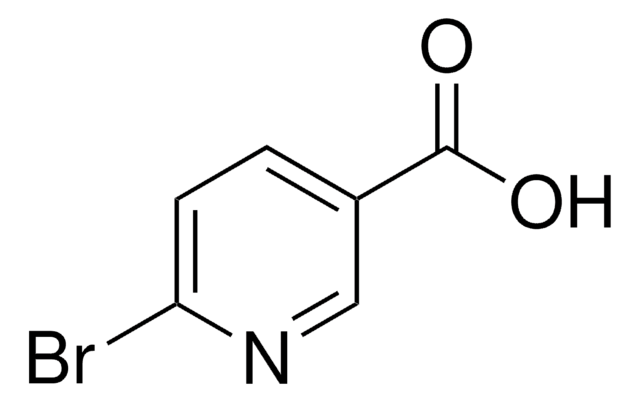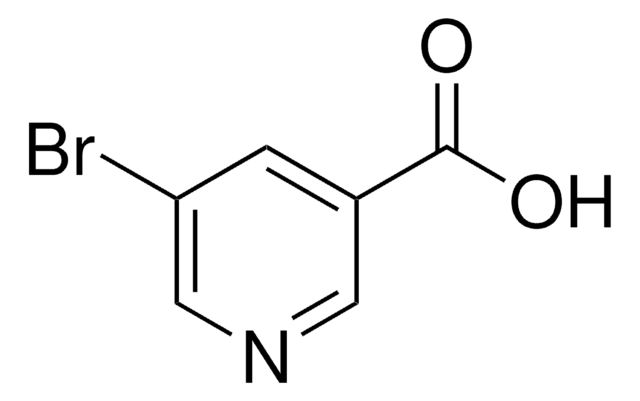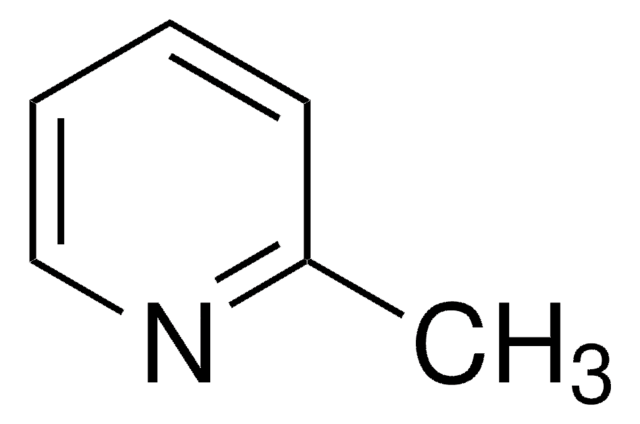654213
2-Methylpyridine borane complex
95%
Synonym(s):
2-Picoline borane complex
About This Item
Recommended Products
Assay
95%
form
solid
reaction suitability
reagent type: reductant
storage temp.
2-8°C
SMILES string
CC1=NC=CC=C1.B
InChI
1S/C6H7N.B/c1-6-4-2-3-5-7-6;/h2-5H,1H3;
InChI key
QHXLIQMGIGEHJP-UHFFFAOYSA-N
Looking for similar products? Visit Product Comparison Guide
Related Categories
General description
Application
- Synthesis of alkoxyamine derivatives, via reduction of oxime ethers.
- Reductive amination reactions of C1-C10 aldehyde 2,4-dinitrophenylhydrazones.
- Synthesis of various trifluoromethylated amino compounds.
- An alternative reagent for reductive aminations.
Reactant for:
Reductive amination
N-Benzyl-protection of amino acid derivatives by reductive alkylation
Reductive alkoxyamination
Signal Word
Danger
Hazard Statements
Precautionary Statements
Hazard Classifications
Eye Irrit. 2 - Skin Irrit. 2 - STOT SE 3 - Water-react 2
Target Organs
Respiratory system
Storage Class Code
4.3 - Hazardous materials which set free flammable gases upon contact with water
WGK
WGK 3
Flash Point(F)
212.0 °F - closed cup
Flash Point(C)
100 °C - closed cup
Personal Protective Equipment
Certificates of Analysis (COA)
Search for Certificates of Analysis (COA) by entering the products Lot/Batch Number. Lot and Batch Numbers can be found on a product’s label following the words ‘Lot’ or ‘Batch’.
Already Own This Product?
Find documentation for the products that you have recently purchased in the Document Library.
Customers Also Viewed
Articles
2-picoline-borane (pic-BH3) is an excellent alternative reagent for reductive aminations.
Learn about the applications of chiral oxazaborolidinium ions (COBIs) as Lewis acid catalysts in different asymmetric reactions such as cyclopropanation, epoxidation, and radical reactions along with details of their catalytic action.
Learn about the applications of chiral oxazaborolidinium ions (COBIs) as Lewis acid catalysts in different asymmetric reactions such as cyclopropanation, epoxidation, and radical reactions along with details of their catalytic action.
Learn about the applications of chiral oxazaborolidinium ions (COBIs) as Lewis acid catalysts in different asymmetric reactions such as cyclopropanation, epoxidation, and radical reactions along with details of their catalytic action.
Our team of scientists has experience in all areas of research including Life Science, Material Science, Chemical Synthesis, Chromatography, Analytical and many others.
Contact Technical Service














